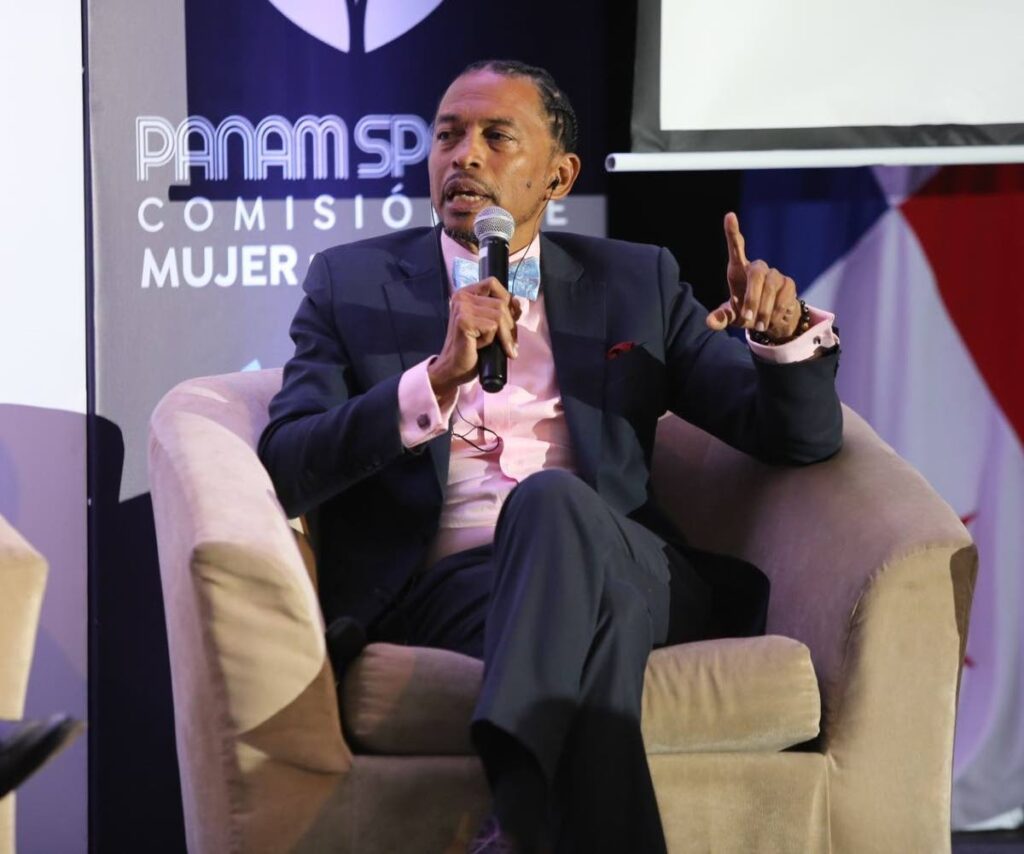Lewis: Community-level sport crucial against crime

DAVID SCARLETT
THE problem of crime lingers nationally with efforts to reduce murders in particular not having the desired effect. Peace marches, joint police-army patrols and other operations have been tried without success. Gang violence remains prevalent and a contributor to the murder toll, which stands at well over 500 for the year.
Former president of the Trinidad and Tobago Olympic Committee (TTOC) Brian Lewis believes that there is a way to reduce the crime pollution in society.
In an interview with TTT morning show NOW last week, Lewis said, “In TT, bodies are dropping and, truth be told, these bodies are mainly Afro-Trinidadians. For a lot of society that has been socialised according to the plantation aspect, it’s almost as if they are subhuman. In other words, we can kill them out, let them kill out themselves, point fingers and blame them for all the issues related to crime, and not address the reality from their side.”
He continued, “The gangs and the youths that are demonised are victims of the system and society. If you look at (the hotspots) from an honest perspective, they are all communities that have been marginalised for generations. They are disenfranchised and they don’t have access to the best schools and (greater) opportunities.”
Newsday spoke with Lewis, the Caribbean Association of National Olympic Committees (CANOC) secretary general, on Saturday and he expanded on his comments. “Crime is what it is. But when you look at youth crime, gang violence and its culture, sport can be used as an intervention in crime prevention,” he said.
“This is proven; it’s not something that’s out of thin air. The United Nations (UN) office for drugs and crime has sport programmes to (combat) crime.”
He then emphasised that sport as an intervention for prevention does not take away from the support and development of world-class athletes. “It’s not either-or, but it’s part of an overall sport ecosystem.”
Lewis said that the sporting programmes are mainly geared towards organised and high-performance sport, and not to youngsters in the community. Lewis said that the government and all national bodies must collaborate to combat crime through physical education and play at the community level.
“If we look at (addressing crime) from this lens, we can identify a number of strategies for the communities,” he said. “(For example), in many communities that are urbanised, there are community centres but no play areas besides basketball courts. We can’t only use organised team sports as interventions. There is also a role for individual sports (and play for those who aren’t in competitive sports).”
Lewis is also adamant that the introduction of sport and physical education between the ages of five and ten is a very potent tool with a particular focus, which is to prevent crime and criminal activity before the ages when peer pressure becomes an issue.
“We have to make the commitment to (reduce crime),” he said. “It takes a collaborative effort. The first standpoint is to harness resources – human and otherwise – and have a strategic focus and goal." He said sustainable funding in necessary to achieve the objectives.
In 2023, TT has hosted events and refurbished facilities to assist communities through both organised sport and recreation. For example, the Next Level Consulting Ltd (NLCL) Community Cup held football competitions at under-15 and under-19 levels, which brought communities together and helped to keep young footballers who reside in rural and "at-risk" areas to focus on their sport and keep away from criminal activity.
Similarly, the Ministry of Sport conducted swimming camps at the refurbished Cocoyea Community Swimming Pool, which provided an avenue for recreation and education for the people of Cocoyea and environs.
Lewis believes that through sport and a sustained youth thrust, this country can become a brighter place.

Comments
"Lewis: Community-level sport crucial against crime"